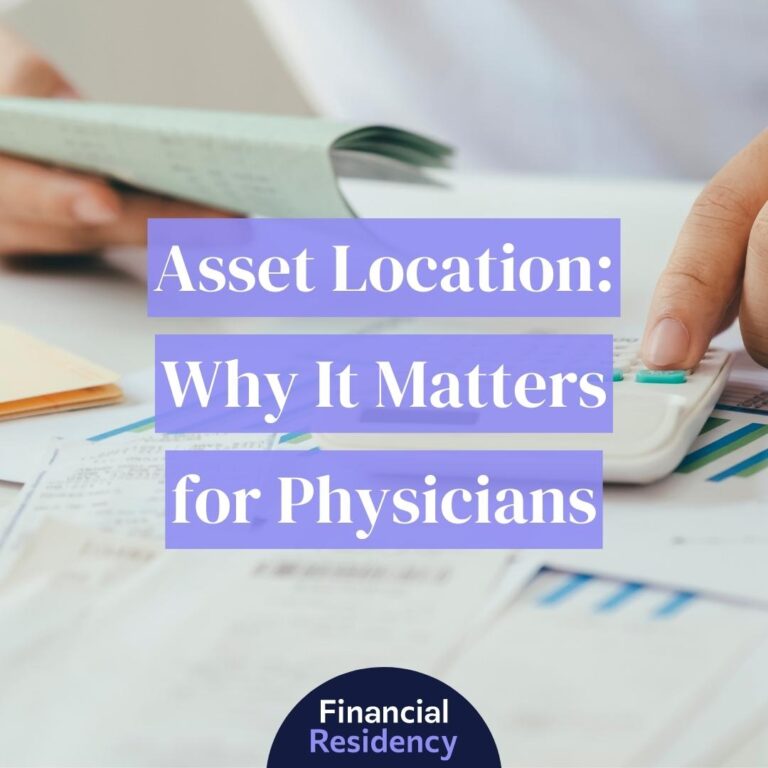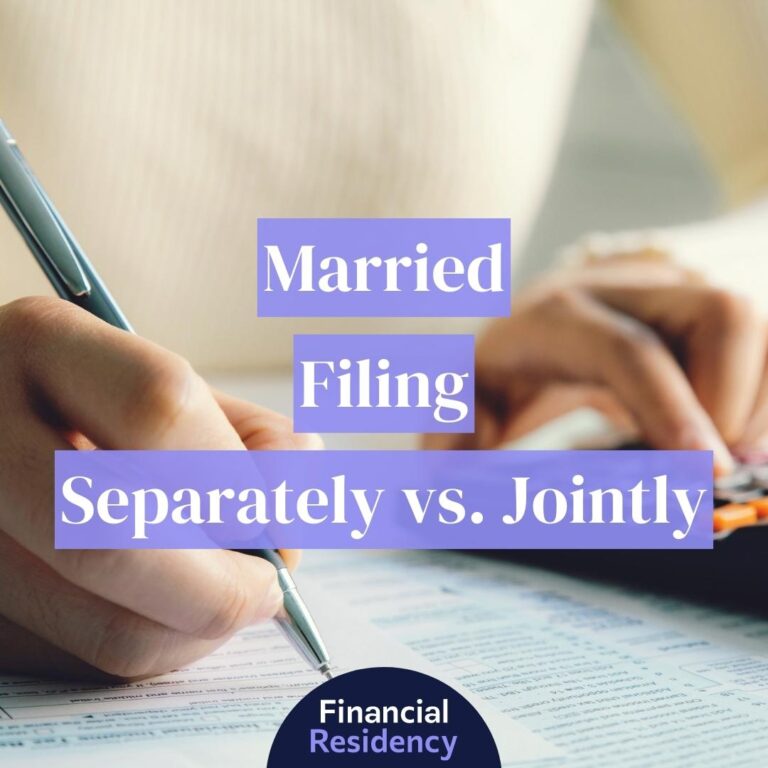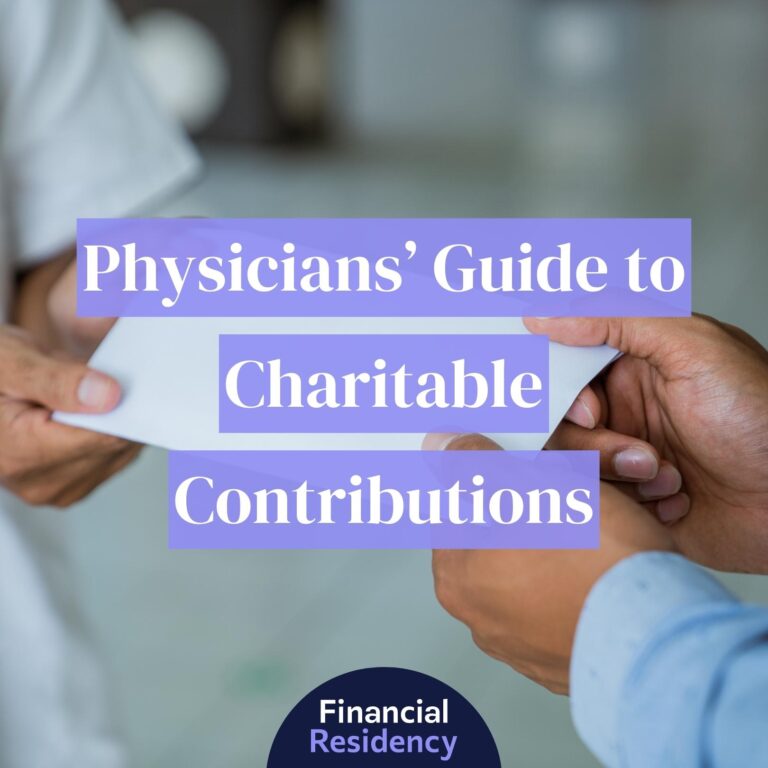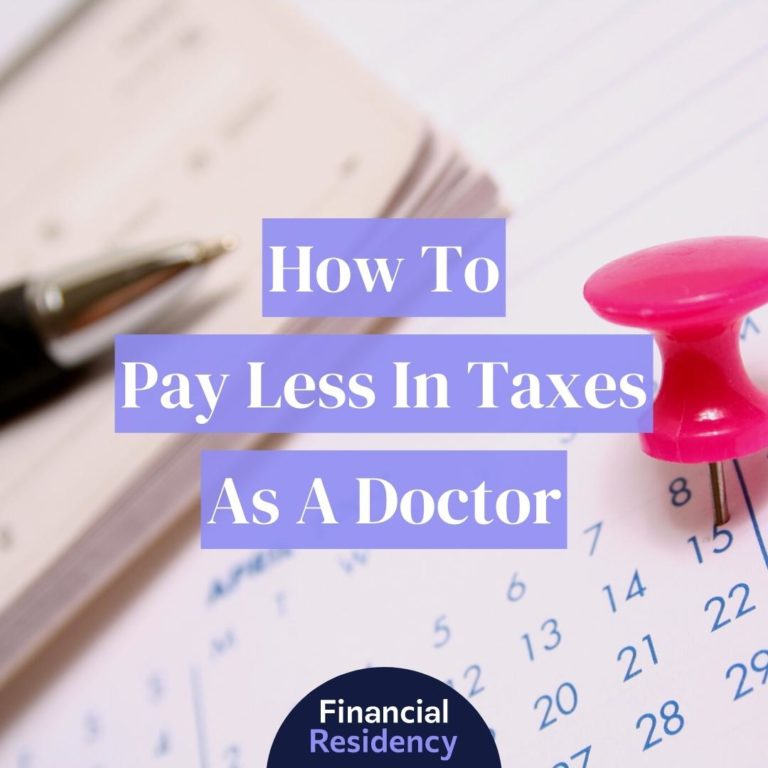Have you ever considered hiring a tax accountant to file your taxes? Maybe your situation is too complex to handle on your own, or you just don’t like doing them yourself. Whatever the reason may be, a tax accountant can help physicians in many ways.
In addition to filing your taxes accurately and timely, physician accountants ensure you capture all available deductions and credits and also work with you to structure your personal finances in the most tax-efficient manner.
Still, not all tax accountants are created equal. This guide will provide you with the information you need to find the best tax accountant for your financial situation.
What is a Physician Accountant?
Think about this from a physician’s perspective. Would an orthopedic surgeon perform brain surgery?
Think about your taxes the same way.
While going to a large, commercial tax preparation company could be the cheapest option, it might not always be the best. Physicians are in a unique situation compared to many other professions, and physician CPAs are more familiar with the challenges and situations you face.
If you can’t find a tax accountant who only works with physicians, finding one who works with high-income individuals is your best bet, even if they don’t solely work with physicians.
Do Doctors Need a Tax Accountant?
Maybe your return is simple, but you don’t like the time-consuming nature of dealing with your taxes. Or maybe your situation is a little more complex and you are more prone to miss something.
There is no right or wrong answer here. It’s all about what makes you feel comfortable.
If you don’t feel comfortable, it might be best to find a specialized accountant for doctors. Like the rest of your personal finances, your taxes are personal, and you want to work with someone you can trust and who has your best interest in mind.
How Do You Find the Best Physician CPA?
Asking other physicians whom you trust should be your starting point when looking for a tax accountant. Ask them if they work with a tax advisor and why they work with them. Why do they trust this person? How did they find them? Does this accountant work with other physicians? How responsive are they?
Seeing how your friend responds to these questions will help you gain an understanding of whether or not this accountant might be a good fit for you.
You can also do a Google search or go to other financial publications that you trust to find recommendations.
Once you have a list of a few accountants, look at their website to see what information you can gain from their site. There is usually at least some basic information on who they work with and their experience level.
Top 10 Questions to Ask a Tax Accountant
Once you’ve found a possible candidate, what should you ask them? How do you know if they are someone you can trust?
Here are a few questions and key things to know when it comes to interviewing a tax accountant:
What are your credentials?
Understand what credentials they have, what they mean, and why they got them. Only certain professionals can file your taxes for a fee including a Certified Public Accountant (CPA), Enrolled Agent (EA), and a licensed attorney.
A CPA is licensed by the state board of accountancy and must pass a rigorous exam, uphold high ethical standards, and complete continuing education every year. Attorneys are all licensed by passing the BAR exam, and they must also complete continuing education requirements. An EA is licensed by the IRS after passing an exam and must complete continuing education too.
No matter what credentials someone has, you ultimately want to work with someone you personally trust. Don’t let the letters behind someone’s name distract you from the type of person they are.
What is their experience working with someone in your situation?
As we mentioned previously, you will want to find someone who specializes in working with physicians. On a more personal level, you want to know if they work with people who are in a similar situation as you.
If you want to execute a Backdoor Roth IRA, and they’ve never even heard of it, you might want to interview someone else. However, if they know what it is and can explain it to you, they should be able to do research and talk with colleagues to fill out the form correctly, even if they’ve never executed one themselves.
What happens if there is a mistake on my tax return?
Tax accountants are not responsible for your taxes. They will prepare your taxes and help you with your tax planning, but ultimately, you are the one responsible for your tax return. You will want to agree with them upfront before you sign an engagement letter to understand what happens in the instance of a mistake.
We are all human, so mistakes are bound to happen. Having clear expectations of what happens when a mistake occurs will make the situation go much smoother when it arises.
What is the fee structure?
There are a few different compensation arrangements when working with tax preparers and advisors. The most common are hourly or complexity-based.
If you decide to work with someone who charges you hourly, you will want to know what the hourly rate will be and how long they expect your return to take. This will give you an idea of what you can expect the cost to be.
When paying hourly, you will want to agree on the max number of hours you want them to work on your return before coming back to you and adjusting the agreement. You don’t want them telling you it’s going to take five hours and then realizing after it’s too late that they had to work ten hours, and now your price has doubled.
Another compensation model is based on complexity. This one usually feels better for both parties. The tax accountant reviews your situation and determines the amount of work he thinks it will take to complete your return. He then charges you a flat fee based on the complexity of the return and the time it is going to take. Like an hourly arrangement, they should come back to you if the return is taking way longer than expected and talk about adjusting the cost.
What services are included?
When talking about fees, you also want to understand what is included in the fee. Is it just tax preparation? Will you have access to them throughout the year for questions and tax planning services? Establish this upfront, so you know what to expect.
For example, if you are audited by the IRS, your tax preparer is not responsible for representing you before the IRS, unless you agree to it. You will want to establish this upfront with them before you sign a contract or engagement letter.
What is an Engagement Letter?
An engagement letter is an agreement signed by you and your accountant to agree on the terms of the relationship. This should outline the details of the relationship including the fees, the responsibilities of both parties in a variety of circumstances, and who is obligated to do what.
Without an engagement letter, there is a lot of uncertainty and you don’t want uncertainty when it comes to your taxes or your relationship with your accountant. A signed engagement letter will curb this uncertainty and help you feel at ease.
Who will you be working with?
Will you be working with the person you met with, or will they pass you on to another team member?
Remember, you interviewed with one person. If you liked that person and built trust with them, you probably want to work with them. If your return and correspondence are going to be handled by someone else, you will want to know this and determine if you can trust the person you will be working with on a more regular basis.
What is the review process like?
Tax preparers come in all varieties. Some work solo while others work with a team. You will want to know how they will review your tax return before submitting it to the IRS.
Just because someone works solo instead of with a team doesn’t mean they don’t have a good review process. Understand their process and make sure you are comfortable with it.
How quickly can you expect a response from them?
Tax preparers are extremely busy from January to April every year. You can likely expect a delayed response from them during this time. However, if something comes up that you forgot about, or you received a new form from the IRS or a financial institution, you will want to communicate that with your advisor.
Even if they don’t respond immediately, you want to know what you can expect related to your communication with them.
Can you review your tax return before they file it?
If this is not an absolute yes, then you need to find someone else to work with. You are solely responsible for your own tax return, so you will want to review it before it is filed with the IRS. Even better, they should be willing to walk you through your tax return and explain why you owe additional taxes or why you are getting a refund.
How quickly can I expect my return to be completed after providing you with all the information?
This will vary by person. Some people are busier than others. If you know it will be two weeks after you provide the information, then you can relax and not worry about sending any follow-ups until the two weeks are up.
Additional Things to Know About Your Tax Accountant
Besides interviewing a tax accountant to see if they will be a good fit for you, there are a few additional things you should know when looking for one.
Do They Need to be Local?
They do not need to live in your state. Federal taxes are the same across all states, and while state taxes vary from state to state, a good tax advisor will be able to understand the basics of your state and make sure your taxes are filed timely and accurately.
Check Their Licensure Status
If you are working with a CPA or licensed attorney, check the state’s website that they are licensed in to make sure they are in good standing with the state. The last thing you want is to have your taxes done by someone who is a fraudster or who has an inactive license.
If you are working with an Enrolled Agent of the IRS, you can send an email to the IRS to verify the status of the EA. Use this website to learn more about verifying an EA status.
What Can a Good Tax Accountant Do for You?
A good tax accountant will do more than file your taxes. They will also act like a trusted financial advisor and help you with your unique, personal situation.
They will review your prior year’s tax returns, and if they see a mistake, they can amend it and set you straight with the IRS. A few years ago, a CPA I know reviewed the prior-year tax return of some new clients and determined that they incorrectly paid the IRS $2,000 in taxes. After confirming with the client, he amended and corrected the return and within three weeks, the $2,000 was deposited into his client’s account. That’s what having a good accountant can do for you.
They will also help you structure your personal finances in the most tax-efficient way possible that also aligns with your goals. They will give you advice and help you understand various ways you can save money on taxes through credits, deductions, retirement savings, or other strategies.
Finally, they should welcome having an ongoing relationship with you. Tax preparers who handle a high volume of clients don’t have the time to establish ongoing relationships with their clients. They are only profitable if they crank out hundreds of returns in a tax season which makes the relationship impersonal.
Tax preparation is only one piece of your tax planning. You want to work with someone who will not only prepare your taxes but also be there for you throughout the year to answer your questions when you want to buy a home, start a business, save for your kid’s college, or any other major life event. Having an ongoing relationship with someone will help you build trust with them and help you feel at ease and know your taxes and personal finances are in the right hands.
Bottom Line
Like most professional services, you want to find a tax advisor you can trust. This isn’t always easy, and you might make some mistakes when going through the process. Don’t settle on working with someone whom you don’t trust.
We hope you will use this guide when thinking about hiring a tax accountant. Use it to help you interview them and understand if they will be the right fit for you. You should interview them just as much (if not more) than they interview you. Trust is a two-way street and you want to know you and your taxes will be in good hands. Remember, it is your choice whom you work with. Don’t let anyone pressure you into a situation you don’t want to be in or decisions you don’t want to make.
Your personal finances and personal taxes are personal. Find someone who will treat them that way.




